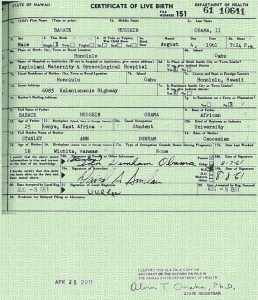 Yesterday Michael Wolff’s new book, “Fire and Fury” dropped out of the sky like a bombshell and has been, sometimes, the only news story in town.
Yesterday Michael Wolff’s new book, “Fire and Fury” dropped out of the sky like a bombshell and has been, sometimes, the only news story in town.
If you’re not familiar with the controversial book, Mr. Wolff claims to have conducted more than 200 interviews, many of people who work in the West Wing. The book contains a lot, and I mean a lot, of very unflattering things that people had to say about the president.
If you are a liberal, progressive, Democrat or someone who just doesn’t generally like the president (and that would put you in the upper 70 percentile of Americans) you would probably be prone to believe most of what is being said. My purpose here, however, is not to discuss the merits of the content of the book, rather to take a look at the administration’s response to it.
The Independent reported on November 15, 2017 that “Donald Trump has made 1,628 false or misleading claims since becoming President.” (That’s almost 6 times per day.)
Today in her daily White House press briefing, press secretary Sarah Huckabee Sanders let it be known that the president’s lawyers were poised to file a defamation lawsuit on behalf of the present against the author and the publishers of this book.
It is my sincere hope that no one misses the irony of this situation. The world’s biggest protagonist of birtherism [Trump]–the unfounded claim that former Pres. Obama was not a US citizen and therefore unqualified to serve as president of the United States–now wants to sue someone for saying not very nice things about him.
After a review of the applicable law and Federal Rules of Civil Procedure, and specifically Rule 121(b) which sets forth guidelines for a motion to dismiss, that really doesn’t seem like such a good idea. Here’s why:
It is really very difficult for a politician, and especially for the president of the United States, to successfully sue anyone for defamation. Politicians are deemed to be “public figures.”
What is a public figure? Generally defined in a brief, well-written discussion in Wikipedia,
A public figure, in US law, is a person such as a politician, celebrity, or business leader, who has a certain social position within a certain scope and a significant influence and so is often widely concerned by the public, can benefit enormously from society, and is closely related to public interests in society[1].
In the context of defamation actions (libel and slander) as well as invasion of privacy, a public figure cannot succeed in a lawsuit on incorrect harmful statements in the United States unless there is proof that the writer or publisher acted with actual malice by knowing the falsity or by reckless disregard for the truth.[2]
What, exactly, is defamation?
Well, it’s kind of like Justice Potter Stewart wrote in the Supreme Court decision in Jacobellis v. Ohio, 378 U.S. 184 (1964) wherein the Court struggled with how to define pornography,
“I shall not today attempt further to define the kinds of material I understand to be embraced within that shorthand description; and perhaps I could never succeed in intelligibly doing so. But I know it when I see it, and the motion picture involved in this case is not that.”
Okay, so that’s not very helpful, but it’s generally true about defamation. There are certain general kinds of things that can be defamatory. “Generally, defamation is a false and unprivileged statement of fact that is harmful to someone’s reputation, and published “with fault,” meaning as a result of negligence or malice,” according to the Electronic Frontier Foundation. Much time use to be spent on differentiating between slander (spoken hurtful untruths) and libel (printed untruths) but the general law in most states now simply refer to such matters as defamation.
Without getting too mired down, lets just say that it is easier to defame someone who is not a public figure. The reason lies in the burden of proof. A public figure must be able to prove an additional element in order to succeed in his litigation–malice. That is that the publisher (i.e., the person or entity that made the statement) either knew the statement was false or acted with a reckless disregard for the truth.
So a public figure must prove each of the following:
- a publication (statement) to someone other than the person defamed (I can call you a liar and a thief to your face as much as I want);
- a false statement of fact;
- that is understood as
- being about and concerning the plaintiff; and
- which tends to harm the reputation of plaintiff.
AND, if the plaintiff is a public figure, he or she must also prove actual malice.
As such, calling a politician a “thief” or a “liar” probably won’t get you into trouble. Truth, you see,is a complete defense to an allegation of defamation.
And even if Trump’s legal team were to file a defamation lawsuit, there’s that pesky Federal Rule of Civil Procedure 12(b) I mentioned above which allows a defendant to bring a motion to dismiss on several enumerated grounds:
(1) lack of subject-matter jurisdiction;
(2) lack of personal jurisdiction;
(3) improper venue;
(4) insufficient process;
(5) insufficient service of process;
(6) failure to state a claim upon which relief can be granted; and
(7) failure to join a party under Rule 19.
Based on our discussion, above, it would seem that the president’s defamation action would be pretty short-lived. So maybe that’s why, as reported by CNN today, the president’s lawyers are now insisting, through a letter to the author and to the publisher to stop saying not nice things about him.
“Mr. Trump hereby demands that you immediately cease and desist from any further publication, release or dissemination of the book, the article, or any excerpts or summaries of either of them…”

Seriously, Mr. President? How many years did you claim, without a scintilla of credible evidence, even after an official copy of Mr. Obama’s birth certificate was produced–even up to and through today–that he was foreign born and therefor ineligible to serve as President of the United States?
Could you have imagined President Obama suing Trump over that?

It seems the only time the prevaricator in chief cares about the truth is when he is the presumed victim.
Let’s see. The Independent reported on November 15, 2017 that “Donald Trump has made 1,628 false or misleading claims since becoming President.” (That’s almost 6 times per day.)
The New York Times reported on December 14, 2017, published Trump’s Lies vs. Obama’s, and they were much more generous, reporting a mere 103 Trump lies during his first 10 months in office. To be fair, the Times also reported on the Presidential lies of his predecessors, including Obama and George W. Bush.
Over his 8 year presidency, the times reported that Obama lied–EIGHT TIMES.
The article also discusses Bush’s presidency, “although the lack of real-time fact-checking during his presidency made a comprehensive list impossible.”
The Times, published a list. Take a look at it. Trump’s lies range from “Between 3 million and 5 million illegal votes caused me to lose the popular vote” to “Take a look at the Pew reports (which show voter fraud,” and to “Obamacare covers very few people — and remember, deduct from the number all of the people that had great health care that they loved that was taken away from them — it was taken away from them.” (Obamacare increased coverage by a net of about 20 million.)
So to the Crybaby-in-Chief: Just shut the front door. I would add to any other elected official, “just go out and do your job,” but with this guy that would be hazardous to our health, safety and well-being.
In case you were wondering . . .

